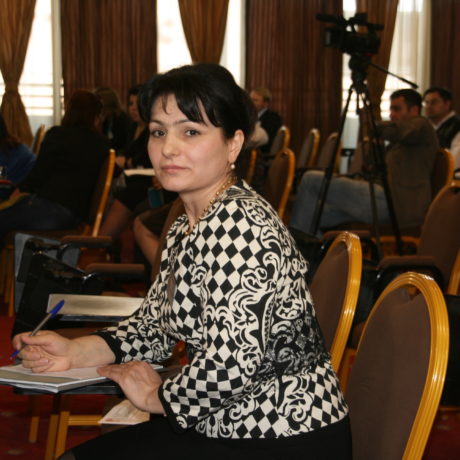Malika Abubakarova
This article is a part of the campaign #12 Women on the Barricades, developed by The Norwegian Helsinki Committee in collaboration with illustrator Jenny Jordahl. We present 12 portraits of women standing on the barricades for other women, focusing on the greatest human rights challenges facing women in Europe today – and what needs to be done to overcome them. Read about the 11 other women on www.nhc.no/en/12womenonthebarricades
The North Caucasus region consists of many regions, including the republics of Chechnya, Ingushetia, North Ossetia and Dagestan. In these regions, basic principles of rule of law is often set aside for the benefit of traditions and religious interpretations. This practice has cost many lives.
At the same time, Malika’s story shows that fighting for women’s rights can bring the situation forward, even where it seems almost impossible.
Guilty until proved innocent
Malika’s clients are mainly women. Mothers who are deprived of their children after divorce, because the children then “belong” to the husband’s family. Young women beaten up by family members and expelled by the family. Hospitalized clients. Some who have been abducted or disappeared, and some even killed.
What is common for these cases is that the prosecutor does not investigate them. There is an understanding that this is family matters that should not be interfered with. What women do and experience is family affairs. If a woman is charged, she is already considered guilty. If she has been unfaithful, worn ‘inappropriate’ clothes or in any other way behaved ‘indecent’, it is up to the family to find a suitable punishment.
Seeing women who are no longer afraid to approach the prosecutors with their problems, gives me hope
Malika Abubakarova
Malika has for decades tried to defend these women by using the law. As a lawyer, she must reveal the family’s “dark rooms”, uncover abuse and gather evidence and stories that were never meant to see the light of day. She and her colleagues risk their lives by taking on such cases, as the reactions from both the authorities and the women’s families are strong.
Society in change
Despite the brutal reality she works in, she strongly believes in the purpose of her work.
“To save a life, to achieve justice, even if it only happens occasionally, and seeing women who are no longer afraid to approach the prosecutors with their problems, gives me hope”, says Malika.
Malika also won several cases she took to local courts. Even a conviction does not necessary resolve the situation. Traditions and a family’s internal justice will often have greater consequences for the women themselves than the conviction itself. Recognition in court, nevertheless, has great symbolic power.
When the national court system fails but has been exhausted, an application can be lodged to the European Court of Human Rights. Russia and especially the North Caucasus has the highest number of cases concerning human rights violations in the court, and new cases are still emerging. Most cases concern the right to a fair trial, the right to life and freedom from torture.
Every case matters
There is a growing awareness about the challenges women in Russia and the North Caucasus are facing. Several civil society organisations offer legal and social assistance, and more journalists are covering the topic. There is also a greater awareness among women themselves about their rights, and what they can do if their rights are violated. More people contact organisations for help than ever before.
Many people have lost their lives fighting for human rights in Russia. The Russian journalist Anna Politkovskaya, who was killed in 2006, and the human rights activist Natalia Estemirova, who was killed in 2009, both worked on disclosing abuses in Chechnya. Due to her work, Malika is living a dangerous life. Therefore, every single victory means so much to her.
In Memory of Anna and Natalia
For the Norwegian Helsinki Committee, it is important that the world learn more about the situation in the North Caucasus, and about the work that is being done to change it. To achieve this, we established the pilot project “Natalia Estemirova’s Documentation Center” where documentation of serious abuse is being collected and systematized. In addition, we annually arrange a seminar in the memory of Anna Politkovskaya.
The work on disclosing abuse in Chechnya is continuing, to Anna and Natalia’s memory. Today the most important work is done by people like Malika, who fights daily for justice in Russia’s most dangerous region for human rights defenders.
Contact
Related
Article
No longer alone in the fight against violence
Article
The journalist who could not be silenced
Article




